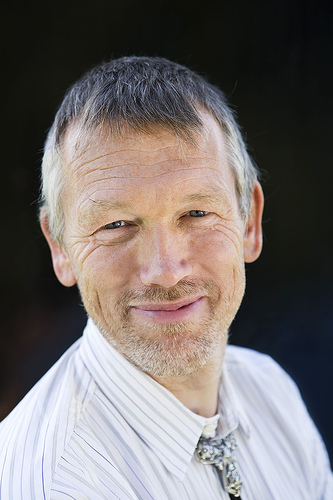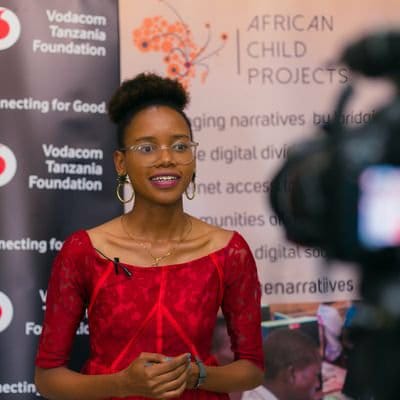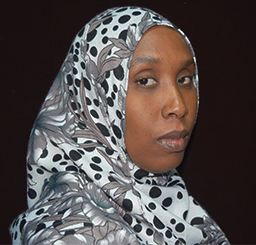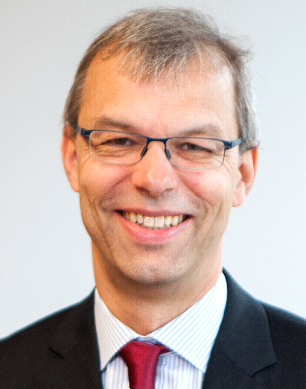Universities have a vital role in shaping the future of the society
University of Oslo
Session 369
Knowledge Cooperation for Connecting the Societies
The panel “Role of Universities in Shaping the Future of the Society” has the goal to broaden the public responsibility for and of Higher Education. It follows the European Standards and Guidelines (ESGs) for institutions in the Higher Education Area, pointing out the responsibility of higher education to harness the promise of digital transformation.
The Internet was rolled out thanks to involvement of Universities, leading to the National Research and Education Networks (NRENs). The NRENs, connecting Higher Education Institutions (HEIs), have created the base for connectivity and services. One of the most notable services is Eduroam, providing roaming access to NRENs in more than 100 countries around the globe.
The current discussion on “infrastructure in underserved areas” shows the need for affordable backbones to foster school connectivity and community empowerment. Examples of such solutions include the Regional Competence Centres (RCCs) for school connectivity, as well as Community Learning & Living Labs (CL3). The session will bring together academic representatives to foster the "Connect the Future" by ideas and best praxis.
https://www.itu.int/net4/wsis/forum/2023/Agenda/Session/369





-
 C1. The role of governments and all stakeholders in the promotion of ICTs for development
C1. The role of governments and all stakeholders in the promotion of ICTs for development
-
 C2. Information and communication infrastructure
C2. Information and communication infrastructure
-
 C3. Access to information and knowledge
C3. Access to information and knowledge
-
 C4. Capacity building
C4. Capacity building
-
 C6. Enabling environment
C6. Enabling environment
-
 C7. ICT applications: benefits in all aspects of life — E-government
C7. ICT applications: benefits in all aspects of life — E-government
-
 C7. ICT applications: benefits in all aspects of life — E-science
C7. ICT applications: benefits in all aspects of life — E-science
-
 C8. Cultural diversity and identity, linguistic diversity and local content
C8. Cultural diversity and identity, linguistic diversity and local content
-
 C11. International and regional cooperation
C11. International and regional cooperation
The following main topics are addressed, answering directly the following WSIS Action Lines:
C1 - The "public responsibility for and of Higher Education" in ICT for development, as stated in the European Standard and Guidelines for Quality Assurance in the European Higher Education Area)
C2 - The need for novel solutions, e.g. school and community servers for a decentralised Internet with affordable access to non-profitable services, establishing school connectivity and Community Learning & Living Labs (CL3)
C3 - The access to educational-, health-, and governmental-information, to build the knowledge for the digital world
C4 - Capacity Building through Regional Competence Centres (RCCs) and practical experience in School Connectivity at local Universities
C6 - Enabling Environment through wireless Information Spots (“InfoSpots”) with School Servers, providing free access to information on the Internet for students
C7 - E-science collaboration between Universities, e.g. The Guild and ARUA University collaboration (https://www.the-guild.eu/news/2022/reframing-global-science-relations-arua-and-the-gu.html )
C8 - Cultural diversity and local content are fostered through the decentralised structure of the InfoSpots at the schools and communities (CL3)
C11 - International collaboration through knowledge cooperation of Universities, and regional cooperation through RCCs at Universities, Digital Friends at schools, NGOs and private actors
-
 Goal 3: Ensure healthy lives and promote well-being for all
Goal 3: Ensure healthy lives and promote well-being for all
-
 Goal 4: Ensure inclusive and equitable quality education and promote lifelong learning opportunities for all
Goal 4: Ensure inclusive and equitable quality education and promote lifelong learning opportunities for all
-
 Goal 9: Build resilient infrastructure, promote sustainable industrialization and foster innovation
Goal 9: Build resilient infrastructure, promote sustainable industrialization and foster innovation
-
 Goal 10: Reduce inequality within and among countries
Goal 10: Reduce inequality within and among countries
-
 Goal 17: Revitalize the global partnership for sustainable development
Goal 17: Revitalize the global partnership for sustainable development
Challenges such as the energy divide, the digital divide and the impact of digital transformation on societal security are core aspects of our work. Decent work (SDG 2) is central to societal mobility, as noted by the World Economic Forum [WEF 2019]. The conceptual work on energy (SDG 7.1, 7.2), internet access (SDG 9.C) and information for all (SDG 16.10) as building blocks for other SDGs is internationally recognised. More specifically, the work on SDG Target 9.C: Universal Access to Information and Communication Technology, which indicates to "significantly increase access to information and communication technology and strive to achieve universal and affordable access to the Internet in the least developed countries by 2020" is an example of addressing connectivity.
The establishment of the Regional Competence Centre (RCC) for Digital Empowerment and School Connectivity addresses SDG target 4.4 "By 2030, significantly increase the number of youth and adults with relevant skills, including technical and vocational skills, for employment, decent work and entrepreneurship" and requires that schools are connected and students acquire the necessary digital skills.
Through the Energy, InfoSpots and Information building blocks, the work on digital and energy equity addresses SDG 1.4 Equal access to basic services, SDG 4.A Educational facilities for effective learning for all, SDG 5.B Use of enabling technologies, SDG 9.C Universal and affordable access, and SDG 16.10 Ensure public access to information.
Presentation “Africa and the Internet”, analysing the Return on Investment (RoI) and suggestion novel models for digital inclusion and empowerment https://its-wiki.no/images/4/44/202302_InternetAfrica_DCD_Noll.pdf